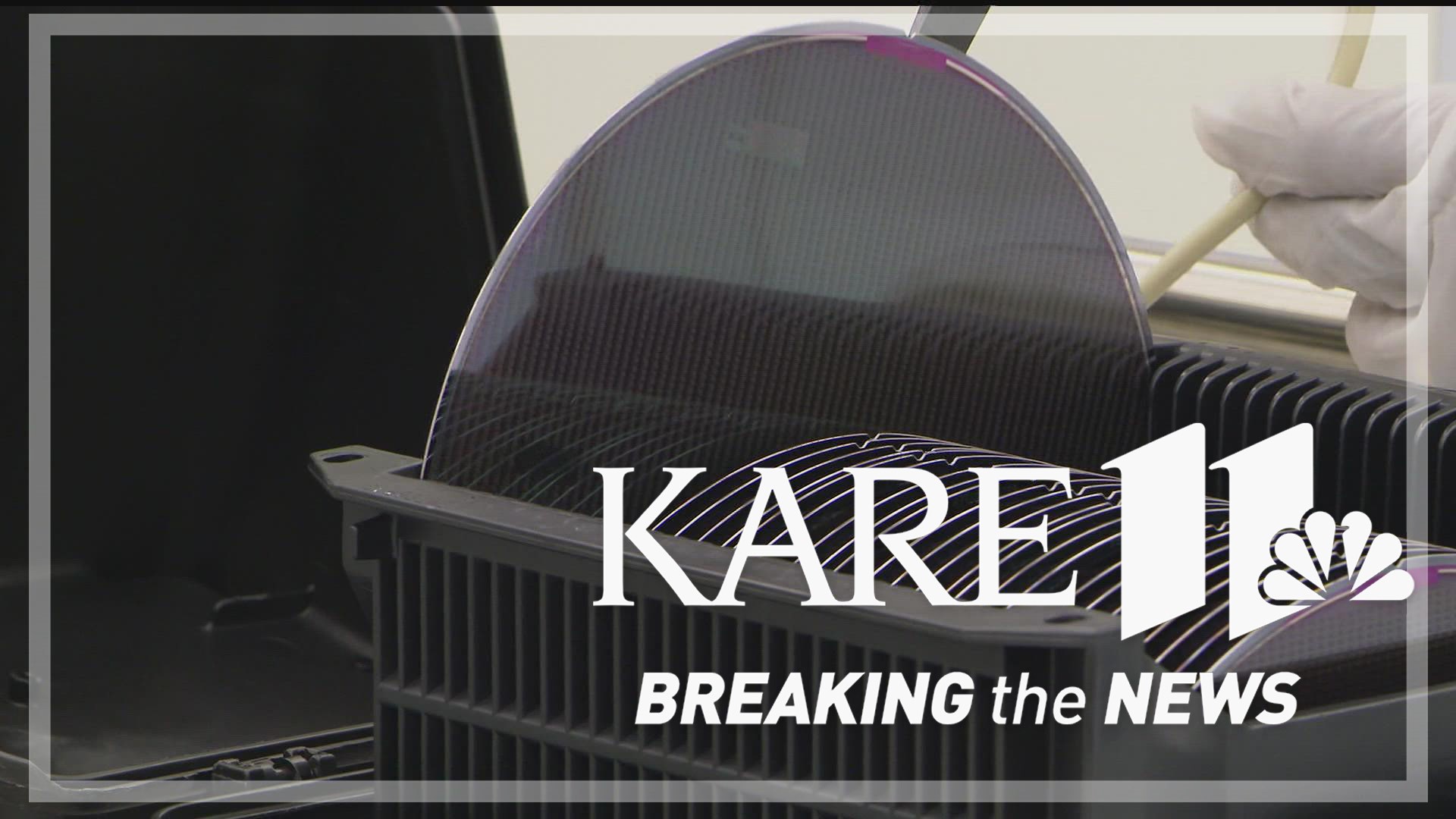BLOOMINGTON, Minn. — A Minnesota microchip maker is among many companies accelerating expansion plans in the wake of the CHIPS and Science Act, which was signed by President Biden this week.
The massive legislative package includes $52 billion for American semiconductor research, development, manufacturing, and workforce development. That includes a combination of government aid for companies that increase manufacturing along with a 25% investment tax credit for capital expenses.
The CEO of Polar Semiconductor Inc, based in Bloomington, says the CHIPS Act could help the company expand capacity quickly - potentially within the year - without having to break any new ground.
"We can increase our output by more than 50%," said CEO Koji Hatano. "We already have the room to expand in our newest (fabrication) building."
KARE 11 toured that fabrication facility one year ago, which produces high-voltage microchip wafers that help power the automotive industry and are also essential to large home appliances.
Though the space is available for growth, Hatano says it will likely take at least a year to order and install the highly specialized equipment that makes the chips.
Erdahl: "What's the status of the chip shortage for Polar a year after we were here?"
Hatano: "Currently, Polar is running 100% of it's capacity, and the demand is higher than that, even right now. Also, we are hearing from our customers that they want to make their parts in the US."
But equipment isn't the only hurdle to meeting that demand. Though Polar is currently running at 100% capacity, it's been doing so with less than 100% staffing.
Polar's president and COO, Surya Iyer, says staffing remains one of the company's biggest long-term concerns.
Iyer: "We're short, I would say, more than 10% of our maintenance technician head count target."
Erdahl: "Right now?"
Iyer: "Right now, and with the expansion, that is going to be the biggest challenge going forward."
Iyer says the CHIPS and Science Act will help with that staffing challenge by dedicating several billion dollars for workforce development and regional innovation hubs.
"Local technical colleges can work with companies like Polar and develop those pipelines to train the next generation of semiconductor technicians," Iyer said.
But Polar isn't the only one working on that workforce pipeline. Many companies have announced new factory expansion plans. In Bloomington, nearby Skywater Technology has said it will move forward with a local expansion, in addition to unveiling plans for a $1.8 billion chip research and production facility in Indiana.
Iyer: "All of that is going to add to the labor needs. I think somewhere in the bill, if I remember correctly, it says there are 90,000 of these technical employees that need to be added to support the demands of the semiconductor industry. That's a big number. I think it's a huge opportunity for the state of Minnesota too."
Erdahl: "Do you believe this CHIPS Act will ease the supply chain issues and chip shortage in the near future?"
Hatano: "I hope so, but with many companies just breaking ground, it could take two or three years. That's not an immediate impact, but that's the reality though."
Watch more Breaking The News:
Watch all of the latest stories from Breaking The News in our YouTube playlist:

